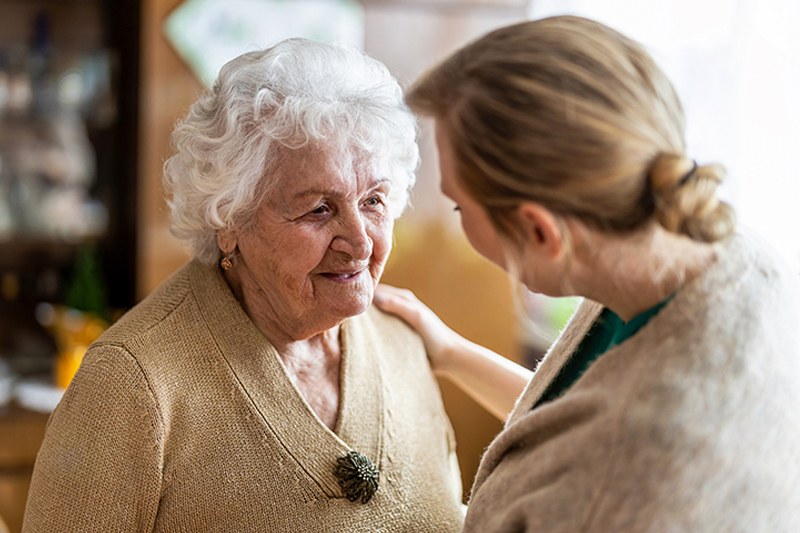
For seniors who live with chronic pain, support is essential, and home care services can offer that and so much more.
Aching. Stinging. Burning. That is how many older adults who live with chronic pain describe how they feel on a regular basis. Chronic pain may occur anywhere in the body, sometimes for no obvious reason whatsoever. It is defined by pain that lasts for more than three months, either continuously or coming and going. And it’s more widespread than you might imagine. In fact, one in four Americans is living with chronic pain.
Needless to say, such constant pain can have a huge influence on an older adult’s overall wellbeing. Not only does it impact the ability to perform everyday physical tasks and activities, it also brings about psychological pressure too, often leading to anxiety, exhaustion, swift changes in moods, depression, insomnia, and more.
How to Treat Chronic Pain in Older Adults
Numerous factors go into the determination of the way to best assist an older adult with chronic pain, including the presumed or known cause of the pain, how significant the pain is, where in the body it happens, and age/overall health. There are a number of medication-based treatments to relieve pain, including treatment for any psychological effects being experienced.
Additionally, the doctor might want to try a nerve block, epidural steroid injection, or transcutaneous electrical nerve stimulation, which involves small electrical impulses delivered through skin patches.
There might be uncomfortable side effects from these forms of treatments, and some are quite serious, so the doctor will need to carefully evaluate what works best for the individual.
Lifestyle Changes Help Older Adults Manage Chronic Pain
Helping older adults implement lifestyle changes is a great place to start, as they can be accomplished immediately without negative effects. Some suggestions include:
- Dietary changes. Particular foods can cause inflammation, which can exacerbate pain. An anti-inflammatory diet that cuts out refined carbs and red meat may be advised by the doctor or a nutritionist.
- Stress reduction. Heightened stress levels can have a substantial impact on chronic pain. There are a variety of techniques to bring down stress that can help, including yoga, deep breathing, meditation or prayer, taking a warm, relaxing bath, reading, or listening to calming music.
- Exercise. Though it may seem difficult to think about exercising[MaMM2] while in pain, low-intensity workouts are actually beneficial, and can also help with alleviating stress. Ask the physician for specific tips.
- Sleep. Adequate sleep is key to all around health and wellness. There’s also a link between insufficient sleep and weight gain, something that can further exacerbate chronic pain. Let the health care provider know if insomnia is an issue so that they can offer guidance on safe techniques to improve sleep habits.
Home Care Can Help!
Let the aging care team at Anthem Home Care, an award-winning provider of home care in Portland, TX as well as throughout the surrounding area, help an older adult you love better manage and live with chronic pain. There are a lot of ways our caregivers can improve quality of life, including:
- Companionship – having someone to talk to and take part in enjoyable activities with is a good mood-booster
- Motivation to take part in recommended exercise programs
- Healthy meals
- Assistance with housework and laundry
- Medication reminders
- Transportation to medical appointments and anywhere else a senior would like to go
- And much more
Reach out to us any time at 361-643-2323 and let us know about the issues you are dealing with so that we can offer a solution to overcome them.
